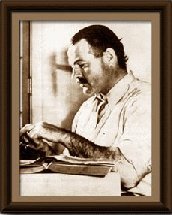Entertainment Weekly put up its 20 favorite dystopian films and, while the list is interesting and has some good stuff, it has a few glaring omissions. So here is my list of what's missing, including some non-glaring (i.e., underappreciated) omissions and some worth mentioning, even if I don't think they're quite good enough to be on a favorites list.
First, a note. I'm using the term "dystopia" in a somewhat broader sense, meaning "future societies that catastrophically suck because of man's stupidity" or, if you prefer Merriam Webster:
an imaginary place where people lead dehumanized and often fearful lives.Some of these movies are probably better subcategorized as post-apocalyptic or simply science fiction, but I don't want to get into all of that. Also, I'm sure I'm omitting plenty of other fine efforts myself, but I'm sticking to things I've actually seen. On with the show:
Glaring Omissions
1984 (1984)
This movie adaptation of George Orwell's masterpiece from, duh, 1984 isn't nearly as engaging and affecting as the book, but it's well cast and certainly worth watching. (Although I feel one of its major flaws is that if you haven't read the book, you won't always be able to follow what's going on.) Plus, it's pretty much the first thing people think of whenever they hear "dystopian."
Planet of the Apes (1968)
This movie obviously kicks so much ass that there's nothing new I can say about it. EW for some reason included the movie's first sequel, Beneath the Planet of the Apes, on its list, but even as the best of the many sequels it's not half as satisfying as the original. Note: Avoid the execrable Tim Burton remake from 2001 -- it truly is utter drek.
 The Terminator (1984)
The Terminator (1984)This isn't my favorite movie and could arguably be excluded from the dystopian category (writer-director James Cameron himself described it as "tech noir"), but its wide and profound influence buy it a spot on the list. It is, of course, more of an action movie than a psychological study and has a different mood and focus, but the feeling of doom is still present and it's entertaining enough to watch.
Underappreciated Omissions
On the Beach (1959)
Adapted from Nevil Shute's novel, this film is one of director Stanley Kramer's less bombastic efforts, and it's a much stronger product as a result. A global nuclear war has wiped out most of the earth, with the survivors awaiting their own deaths via a radioactive cloud soon to catch up with them in Australia. Powerful, well acted, and highly recommended.
The Lathe of Heaven (1980)
I remember seeing this made-for-TV movie when it first broadcast on PBS, and it tripped my 9-year-old brain out. It's been a long, long time since I saw it, but Ursula K. Le Guin's story of a man whose dreams shape and re-shape reality has nevertheless stayed with me. Again arguable as "dystopian," but nevertheless a classic mindfuck in the tradition of Philip K. Dick. Remade (and significantly altered) as Lathe of Heaven in 2002.
Honorable Mentions
La Jetée (1962)
A French short clocking in around half an hour, this interesting little experiment would later inspire Terry Gilliam's 12 Monkeys (which made EW's list). People living underneath Paris after a nuclear holocaust send a man back and forth through time to ensure humanity's survival. Ambiguous but hypnotic.
Equilibrium (2002)
This movie's premise is rather preposterous, but if we had to exclude movies on that ground alone, then we'd need to throw out almost everything except boring little documentaries. In an effort to suppress war, the regime of the future has banned human emotions, administering drugs to the masses to ensure they do not feel. Unfortunately, this makes art, books, music, and all the swell things we love verboten as well...
Bonus: Dystopian Novels That Have Never Been Made into Movies (So Far As I Know) But Maybe Should Be
We by Yevgeny Zamyatin
In the world of the future, citizens of the One State do not have names and literally live in glass houses. Written in the 1920s Soviet Union, this bleak little novel would later inspire Orwell and many others, yet few people seem to even know it exists.
This Perfect Day by Ira Levin
The "perfect" society is achieved as humanity is controlled via sense-deadening drugs and a vast computer that tracks and prescribes every movement. Equilibrium, mentioned above, shares some plot and setting details with Levin's criminally out-of-print novel of collectivistic oppression, but that film doesn't come close to matching this book in mood, style, theme, or the ability to provoke thought.
That Hideous Strength by C.S. Lewis
The third book in Lewis's Space Trilogy (which I mostly disliked), this tale takes place on earth. Yes, it's too heavily laden with Christian allegory and explores themes Lewis would much more brilliantly address in The Abolition of Man and other essays. But for all of its failings, it's still a creepy, sinister story. On second thought, this would most likely make a terrible movie. Never mind.











|